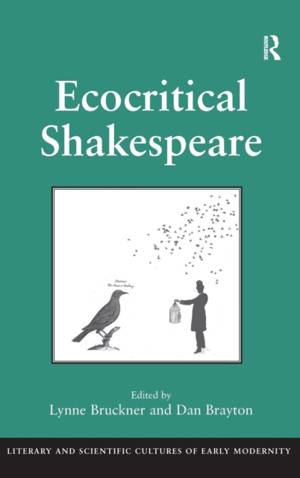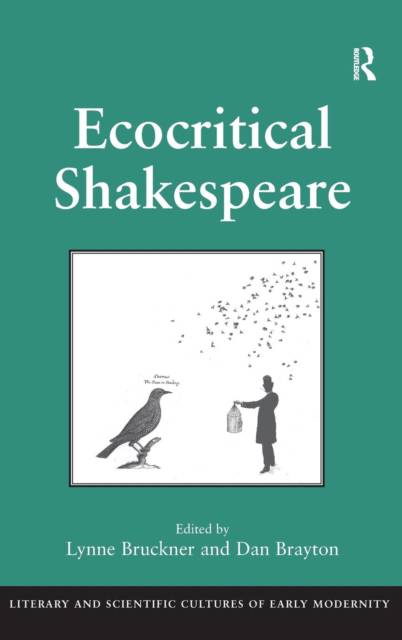
Je cadeautjes zeker op tijd in huis hebben voor de feestdagen? Kom langs in onze winkels en vind het perfecte geschenk!
- Afhalen na 1 uur in een winkel met voorraad
- Gratis thuislevering in België vanaf € 30
- Ruim aanbod met 7 miljoen producten
Je cadeautjes zeker op tijd in huis hebben voor de feestdagen? Kom langs in onze winkels en vind het perfecte geschenk!
- Afhalen na 1 uur in een winkel met voorraad
- Gratis thuislevering in België vanaf € 30
- Ruim aanbod met 7 miljoen producten
Zoeken
Ecocritical Shakespeare
€ 320,95
+ 641 punten
Omschrijving
Can reading, writing about, and teaching Shakespeare contribute to the health of the planet? To what degree are Shakespeare's plays anthropocentric or ecocentric? What is the connection between the literary and the real when it comes to ecological conduct? This collection, engages with these pressing questions surrounding ecocritical Shakespeare, in order to provide a better understanding of where and how ecocritical readings should be situated. The volume combines multiple critical perspectives, juxtaposing historicism and presentism, as well as considering ecofeminism and pedagogy; and addresses such topics as early modern flora and fauna, and the neglected areas of early modern marine ecology and oceanography. Concluding with an assessment of the challenges-and necessities-of teaching Shakespeare ecocritically, Ecocritical Shakespeare not only broadens the implications of ecocriticism in early modern studies, but represents an important contribution to this growing field.
Specificaties
Betrokkenen
- Uitgeverij:
Inhoud
- Aantal bladzijden:
- 304
- Taal:
- Engels
- Reeks:
Eigenschappen
- Productcode (EAN):
- 9780754669197
- Verschijningsdatum:
- 29/04/2011
- Uitvoering:
- Hardcover
- Formaat:
- Genaaid
- Afmetingen:
- 156 mm x 234 mm
- Gewicht:
- 603 g

Alleen bij Standaard Boekhandel
+ 641 punten op je klantenkaart van Standaard Boekhandel
Beoordelingen
We publiceren alleen reviews die voldoen aan de voorwaarden voor reviews. Bekijk onze voorwaarden voor reviews.








